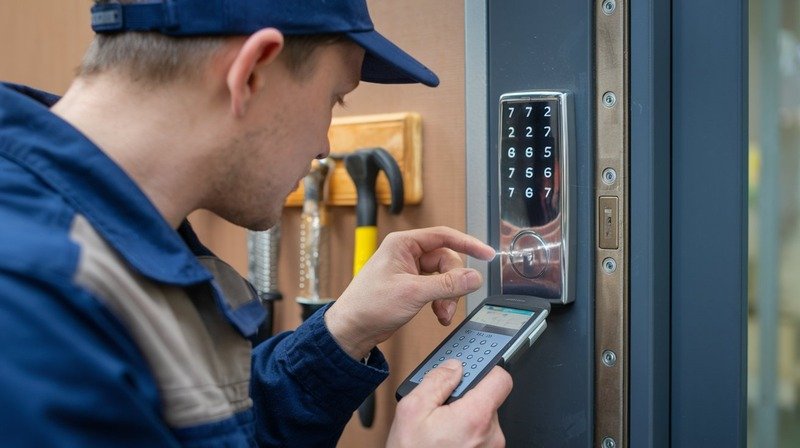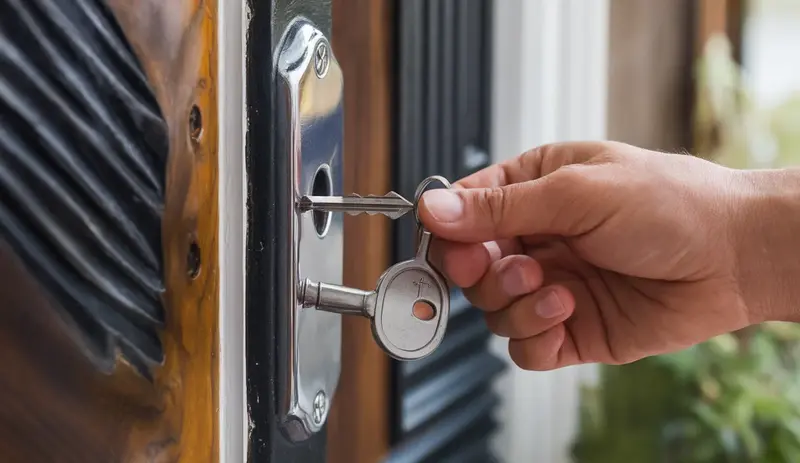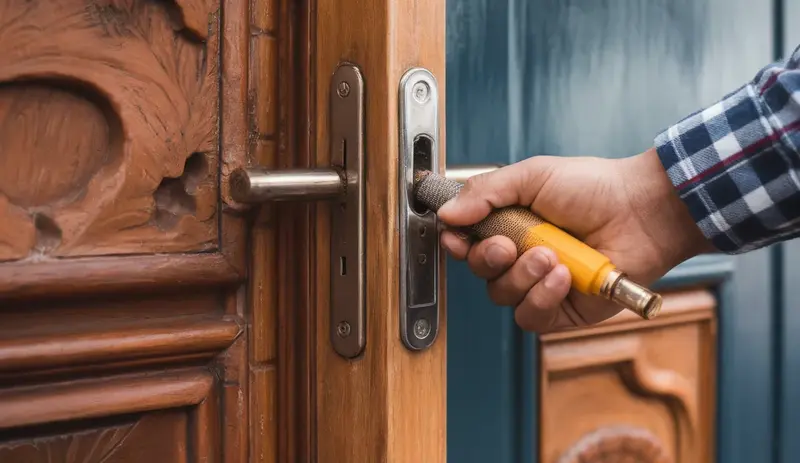
It’s 11 PM, you’re exhausted from a long day at work, and all you want is to crash on your couch. But instead of walking into your home, you’re standing outside, staring at your fancy smart lock that’s decided to go completely unresponsive. The battery’s dead, the app isn’t working, and panic starts to set in.
Is this the moment your high-tech security system becomes your worst nightmare? Don’t stress. Electronic locks might seem complicated, but professional locksmiths are way more tech-savvy than you might think.
This guide will walk you through exactly what happens when your smart lock throws a tantrum and how a skilled locksmith can get you back inside without turning your door into Swiss cheese.
What Counts as a Smart Lock Emergency?
Home security has been transformed by smart locks, yet these can experience some surprising glitches that can stress even the calmest homeowner. Let’s examine the times when your high-security, high-tech smart lock can turn into a low-tech, high-anxiety security situation.
This usually happens when it locks you out—stopping you at the threshold when you most need to get through. A true smart lock emergency typically involves symptoms like these: a totally electronic shutdown, a dead battery in the smart lock, or a malfunctioning critical component.
Various electronic locks possess distinct weaknesses. WiFi-connected locks might have connectivity problems, while locks that use Bluetooth can have pairing problems that make them very hard to use. Smart locks that run on batteries are particularly vulnerable to sudden power failures that can catch you completely off guard.
And here’s something most people don’t realize: Even the best and most advanced electronic lock is useless when the power is off or when a glitch in the software renders it unable to respond to a command from a user.
How Locksmiths Handle Electronic Lock Problems
Traditional lock-picking is still a part of the locksmithing trade, but these days, it is performed by those who have mastered the art of working with mechanical locks.
Modern technicians now carry specialized diagnostic tools to assess and address issues with electronic locking systems. These tools can read complex digital lock mechanisms in minutes and are far beyond the types of equipment their forebearers used to do the same level of work.
You May Like: How Do I Avoid Lockout Situations In The Future?
This is a striking departure from the old-fashioned way of picking a lock. Today, when a lock doesn’t work, it’s more likely to be an electronic problem than a mechanical one, and no amount of old-style mechanical skill is going to get it open.
Working on the theoretical principle that any system can be worked around if the system’s design and operation are understood well enough, locksmiths have traded in for a new set of tools, relying on computer diagnostics and more sophisticated mental models of how electronic locks (and the systems they’re a part of) work.
Common Smart Lock Emergencies (And How They Get Fixed)
The most common smart lock emergency is battery failure. When your lock unexpectedly stops working, it’s usually due to a lack of power. A locksmith can quickly replace the batteries or identify battery-draining issues that may be causing your lock to fail.
Another problem often confused with battery failure is poor connectivity. In smart lock emergencies involving connectivity, a locksmith may perform a factory reset or update the lock’s firmware.
Breaking down physical mechanisms is more challenging. These can involve any number of internal electronic components, circuit board issues, or mechanical lock failures that require technical precision for resolution.
A pro not only can figure out what went wrong but also determines whether a targeted repair or a complete replacement of the lock is the most sense-making solution.
When DIY Isn’t Enough: Signs You Need a Professional
Several warning signs practically scream, “Call a professional!” If your smart lock sends you repeated error messages, locks or unlocks randomly, or just plain stops responding to your digital key, it’s time to take a step back-using the smart lock in a secure way until help arrives.
Bricking the system is a real risk while trying to DIY your way to a solution. And if it does that, you can bet your Bitcoin the professional fix will far outweigh the cost of going it alone.
Self-repair carries risks that can lead to irreversible electronic harm, and even if you do manage to reassemble your device without frying any systems, you may have voided the warranty that covers you for any future mishaps. For many people, it’s a struggle to see the value in paying a locksmith for a few hours of work when the locksmith’s tunes can barely be heard over the siren song of DIY.
Choosing the Right Locksmith for Electronic Locks
Locksmithing is not an equal opportunity profession. Many locksmiths hold appointments in the guilds and trades, yet many others work in dubious conditions with questionable credentials and limited skills.
Because electronics have become paramount in modern society, a true locksmith should understand not just the old mechanical systems but also the new digital systems.
The best locksmiths combine traditional mechanical skills with cutting-edge electronic know-how.
Essential queries to pose encompass their history with your exact brand of lock, their method of reaching a diagnosis, and the kind of warranty they offer on repair jobs. The ideal locksmith is open about what they can do and gives a lot of good, concrete information up front about what kinds of things might need to happen to your lock to get it working again. Find a trusted locksmith near you on Google Maps.
Final Words
Smart locks are incredible technology, but they’re not invincible. While they promise convenience, sometimes they need a human expert to step in and save the day. A good locksmith isn’t just someone with lock-picking skills anymore-they’re basically tech troubleshooters who can handle everything from traditional deadbolts to the most complicated smart home security systems.
The bottom line? Don’t panic when your electronic lock goes haywire. With the right professional, you’ll be back inside and secure faster than you can say ‘reset password.’ Stuck with a stubborn smart lock? Don’t wait-call a professional who understands modern security technology. Your home’s safety depends on smart solutions, not desperate measures.


